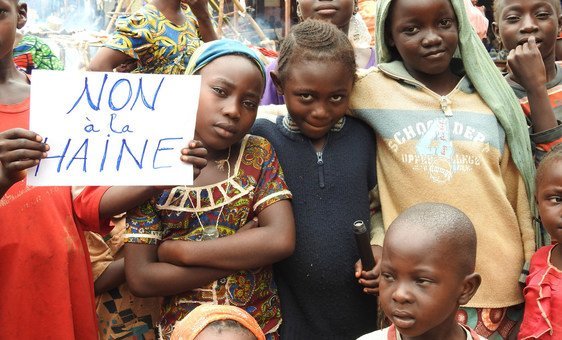The UN General Assembly designated the international day on 22 August, highlighting the need to support those affected by acts of violence due to their religion or beliefs.
The Assembly’s resolution condemned violence against individuals due to their faith, including attacks on homes, businesses, places of worship, and cultural sites, reinforcing the importance of upholding international law and protecting religious freedoms.
Condemning hate
The UN Secretary-General, António Guterres, said many individuals and communities globally continue to face violence based on religious beliefs, which needs to be urgently combatted.
“Governments must protect all people and places of worship, implement comprehensive anti-discrimination laws, and invest in education initiatives that foster inclusion and equal rights,” Mr. Guterres said.
The UN chief further said that political leaders need to condemn hate speech and be “clear that violence can never be the answer,” and digital platforms need to ensure policies align with international human rights standards.
“We must work together to stem the tide of hatred and promote tolerance, mutual understanding and respect,” Mr. Guterres said.
UN report warns of rising threats to freedoms in Sri Lanka ahead of elections
A new report from the UN Human Rights Office, OHCHR, released on Thursday highlights renewed threats to fundamental freedoms in Sri Lanka, citing regressive laws, recurring human rights violations and more.
The report highlights various laws and proposals introduced by the government since 2023, granting broad powers to security forces while significantly restricting freedoms of expression, opinion, and association.
OHCHR’s chief, Volker Türk said this trend is concerning since Sri Lanka is approaching a “crucial pre-election period.”
“As the country approaches presidential and parliamentary elections, it has an opportunity to recommit to the transformational changes demanded by a broad cross-section of Sri Lankans, including accountability and reconciliation,” Mr. Türk said.
Other report highlights
The report also discusses the lingering effects of the 2022 economic crisis, particularly on vulnerable populations. Mr. Türk said economic policies need to be guided by human rights obligations.
Persistent impunity for crimes committed during and after the civil war, which ended in 2009, including the 2019 Easter Sunday bombings, is also highlighted, and OHCHR’s chief urges the next government to address the root causes of conflict.
The report further highlighted long patterns of intimidation toward journalists, civil society actors assisting civilians with social disputes and families, especially those that were forcibly disappeared.
Given the Sri Lankan State’s failure to prosecute perpetrators, the report calls on the international community to support accountability through targeted sanctions and other measures in line with international law.
UNICEF condemns the execution of four minors in Somalia
The UN Children’s Fund (UNICEF) announced on Thursday that four young people in Puntland, Somalia were executed over the weekend for crimes they committed when they were under 18 years old and allegedly associated with Al Shabaab, an armed group.
UNICEF said the sentences were issued by military courts that do not specialise in child justice procedures.
Preventing the death penalty
In a statement released by the children’s fund, they said, “The Puntland Age Verification Committee including representatives from Puntland authorities met with the young people and concluded that they were minors at the time of arrest and that they should not face the death penalty.”
UNICEF has asked Puntland authorities to ensure that the young children’s sentencing is in line with Juvenile law as their association with the armed group occurred when they were not of adult age.
“The authorities are urged to take advantage of pathways for reintegrating children associated with armed groups, which already exist and have proven to be effective in upholding the rights of the child,” UNICEF said.
The children’s fund further said they are prepared to work with the Somali government to implement government action plans that will increase the protection of children in armed conflict.
UN rights chief welcomes agreement to create regional office in the Caribbean
UN High Commissioner for Human Rights Volker Türk welcomed the signing of an agreement on Thursday with the Government of the Bahamas paving the way for a regional branch of his Office (OHCHR) in the Caribbean.
The Office will be located in the Bahamian capital, Nassau, and will serve all countries that belong to the Caribbean Community (CARICOM).
Mr. Türk said CARICOM States’ unanimous support for its establishment is shared recognition that human rights are a pathway for solutions. In this regard, he particularly mentioned their adoption of a consensus resolution at the UN Human Rights Council in Geneva last November.
Furthermore, he was encouraged by the bloc’s willingness to increase cooperation with his Office to address numerous challenges in the region, including climate change, the implementation of the Sustainable Development Goals (SDGs) and the enjoyment of the full range of human rights, and to strengthen their human rights architecture.
“Together with my team, I look forward to working with all CARICOM countries, fellow UN actors and other partners to advance human rights for everyone in the region,” he said.

